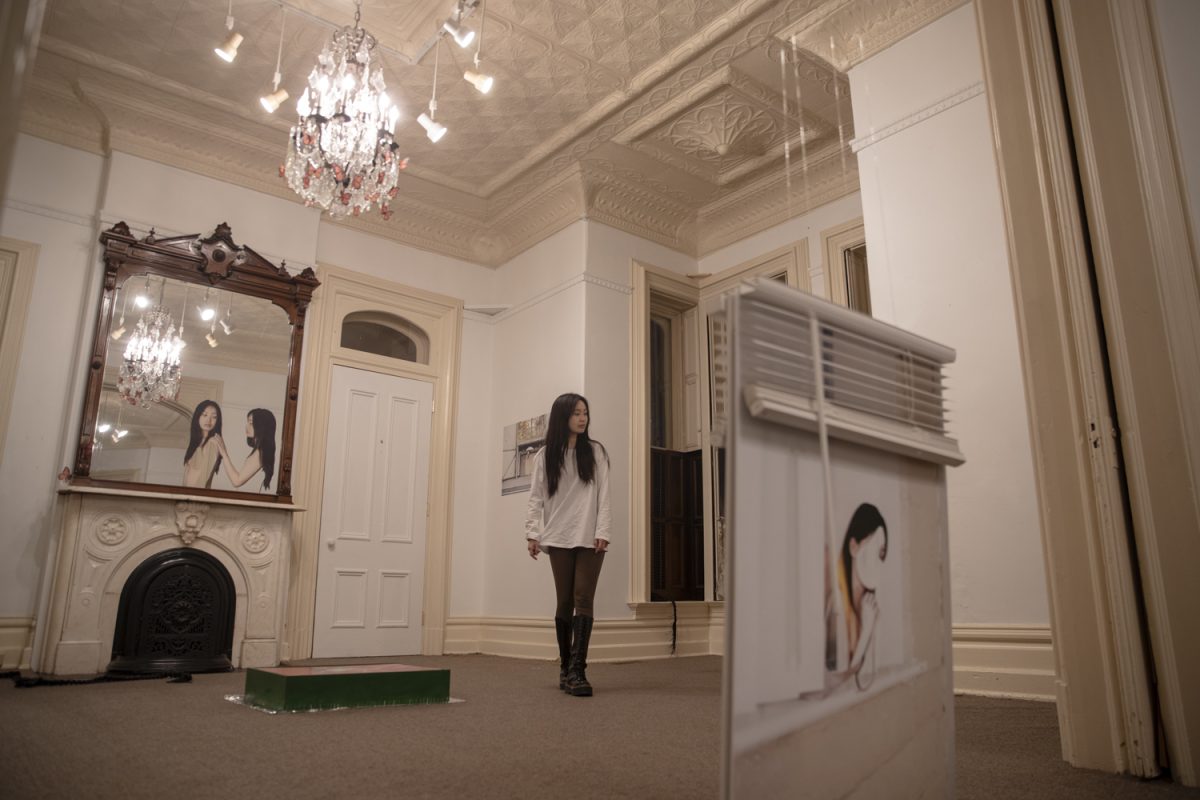Content warning note: This article discusses themes of sexual assault.
When her grandfather gifted her an old camera years ago, Jiayi Liang started taking pictures as a way to feel closer to him. After he died, photography became her passion.
Hoping to create a better life for herself, Liang immigrated from China to the U.S. After the move, she struggled with feelings of disconnect given the language barrier. As a form of universal communication, Liang turned to art.
“Sometimes I [struggled] to communicate with my grandparents, but I felt like photography was how I could communicate with them,” she said.
Though Liang originally sought an education in mathematics, she decided to follow through with her passion and pursue an education in photography.
Liang is currently a Master of Arts candidate at the University of Iowa with a focus on photography.
“I feel like art can allow me more ways of expressing my ideas, expressing my experience, and also it is just very cathartic,” Liang said.
Her most recent project, “The Long Season,” premiered in Iowa City at Public Space One’s Close House location. In her exhibit, she engages with themes surrounding childhood sexual assault, or CSA — something she personally experienced. “The Long Season” was open for viewing at PS1 from April 11-20.
“‘Long Season’ [explores] how my body trauma really impacts me and how it affects my body,” Liang said. “[This project] shows how I can reclaim and control my own body.”
Liang was able to transform an unspeakable feeling into art through symbolic imagery; images of Monarch butterflies displayed hope, while images of Chinese dolls portrayed the fetishization of Asian women.
The photographer has never been afraid of breaking barriers when it comes to art — even if it got her in trouble.
For Liang’s Bachelor of Fine Arts exhibition, a series called “Don’t Tell Your Mom,” she explored similar themes of CSA. To do so, Liang showcased nude images of herself to illustrate some of her ideas, which she said stirred controversy in her department.
“I got a lot of harmful remarks because I was using my own body,” Liang shared. “I was told I should stop making art and that people were not comfortable to see me work. I had to stop my work until I felt I was ready.”
In Liang’s artist statement, she discusses her difficult past and why she feels it is important to speak about it.
“I confront my bodily trauma head-on, transforming the deadlock of my experiences into a visual narrative,” she said.



